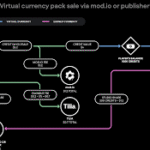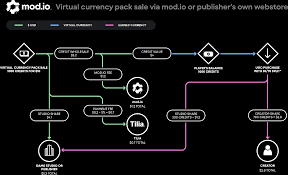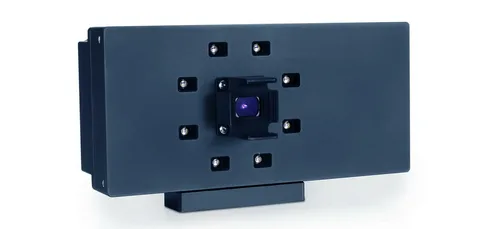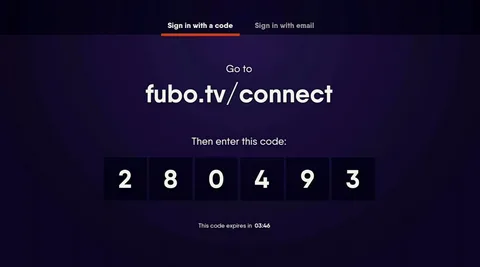Mod.io is a platform designed to simplify and streamline the process of integrating user-generated content (UGC), or “mods,” into video games. Unlike some traditional modding platforms that are purely community-driven, mod.io offers a comprehensive service for game developers to manage, distribute, and even monetize mods across various platforms, including PC and consoles. While the core functionality of mod.io connect is generally free for indie developers, their “subscription” model primarily refers to how players “subscribe” to mods and how developers can utilize premium features or monetize content.
Table of Contents
Mod Subscriptions for Players: Seamless Integration
For Players, the Concept of “Subscription” on mod.io
On mod.io, “subscription” doesn’t mean a paid monthly plan. Instead, it reflects a player’s intent to install and keep using a specific mod. When a user subscribes to a mod, they’re telling the game they want that mod added to their gameplay experience. This simple action initiates a series of behind-the-scenes tasks handled automatically by mod.io, eliminating the need for players to manage downloads or updates manually.
It’s a smart system designed with convenience in mind, especially for those who enjoy customizing their game with community content but don’t want to deal with complicated setup steps.
Automatic Installation and Updates
The moment a player subscribes to a mod, mod.io begins downloading and installing that mod directly into the game, without any user intervention. This feature is perfect for gamers who want a plug-and-play modding experience.
Better yet, the platform ensures that:
- Mods are installed across all compatible devices the user logs into.
- Updates to mods are applied automatically.
- Unsubscribing from a mod removes it from all connected systems, reducing clutter.
For gamers switching between devices, like moving from a PC to a handheld console, this means their favorite mods follow them automatically—keeping gameplay consistent and enjoyable.
This concept of automatic syncing is similar to how apps work across devices. For example, if you’re exploring how to sync content on your streaming setup, you might find guides like Firestick with Rumble useful too.
Cross-Platform Modding
One of mod.io’s standout features is its cross-platform capability. A mod a user subscribes to on one device can be used on another, assuming the game supports that mod on both platforms. This works particularly well for:
- Players who own the same game on multiple platforms.
- Games that offer equal modding support across PC and console.
- Developers looking to unify player experiences.
Imagine subscribing to a car mod in a racing game on PC, and then launching that same game on a console where the mod is already available and ready to use—no extra steps needed.
This approach not only saves time but also makes modding more accessible to casual players, who may otherwise be overwhelmed by platform-specific limitations.
Dependency Management
Modding can get complex, especially when one mod depends on others to function properly. That’s where mod.io’s dependency handling becomes invaluable.
If a mod requires additional files, the system:
- Automatically notifies users.
- Offers quick one-click subscriptions to the required mods.
- Installs everything in the correct order.
This prevents crashes, errors, and the dreaded “missing content” messages that can frustrate players. Instead of hunting down multiple downloads or reading lengthy install instructions, players can focus on enjoying the game with enhanced content.
User Interface Integration
Games that integrate mod.io into their UI provide an incredibly smooth experience. Most titles offer:
- An in-game mod browser.
- Options to search, filter, and sort mods.
- One-click subscribe/unsubscribe buttons.
- Ratings, reviews, and user feedback to guide mod choices.
This level of integration means players can find and install new mods without ever leaving the game. It’s a big upgrade from the days when modding required visiting external websites, downloading zip files, and manually dragging folders into game directories.
For developers, it ensures players stay immersed, and for players, it reduces the friction between discovery and play.
Read More – How to Sign in to Newjetnet Account.
Mod.io’s Business Model: Free Core, Premium Features, and Monetization
Mod.io’s revenue model is multi-faceted, focusing on providing value to both developers and creators.
- Free for Indie Games (Core Features): For independent game developers, adding their game to mod.io and hosting mods is generally free, within certain limits. This allows smaller studios to easily implement mod support without significant upfront costs. The core features, such as mod hosting, discovery, and subscription management for players, remain free.
- White Label Solution for Studios: Mod.io offers a licensed, “white label” solution for larger or AAA studios. This allows them to have a private, branded mod.io environment that looks and feels like an in-house solution, but without the complexity and resources required to develop and maintain it themselves. This is a significant revenue stream for mod.io, with pricing available upon request.
- Monetization and Marketplace Functionality: This is where the concept of “subscription” can sometimes take on a different meaning in terms of revenue. Mod.io provides a “Marketplace” feature that allows game developers to enable monetization for user-generated content.
- Premium UGC: Creators can create and sell “premium” mods or UGC. Players purchase these premium items using a virtual currency specific to the game.
- Revenue Share: When a premium mod is sold, the revenue is split between the content creator, the game developer/publisher, and mod.io. Mod.io typically takes a fixed fee (e.g., 10-12% of the gross transaction value) to cover their costs and platform fees. The remaining revenue is then split between the creator and the game studio, with the studio often having control over this split (e.g., a default of 70% to the creator and 30% to the studio).
- Cross-Platform Payments: The system is designed to support payments across various platforms (web, in-game, consoles), ensuring creators and studios can earn revenue regardless of where the purchase is made.
- Moderation and Compliance: For monetized content, mod.io provides tools and processes, including KYC/KYB verification for users and businesses, to ensure compliance with payment regulations (like PSD2 and PCI) and to help with content moderation.
You May Also Like – How To Register Or Create a New Account Visit Myeclass.
Premium Features for Developers
Beyond simple mod hosting, mod.io offers premium-grade features tailored specifically for game developers and studios that want greater control, customization, and scalability.
One such feature is the “Rules Engine”, which allows automated content moderation based on pre-defined conditions. This helps developers manage large volumes of user-generated content (UGC) by automatically filtering out content that doesn’t meet the community or legal standards. It reduces the need for constant manual moderation, saving time and effort for community managers.
Another high-value tool is the “Embeddable Hub”—a customizable and fully branded mod browser that can be integrated directly into a game’s official website. Developers can create a seamless experience for players who prefer browsing and installing mods from a browser rather than through in-game interfaces. This level of professional integration helps boost community engagement and keeps traffic on official channels.
These premium tools are not automatically included for every developer. They are typically available upon request and might involve additional pricing, especially for studios that require custom support, branding, or enterprise-level services.
Developer-Centric Subscription Model
Unlike players, who “subscribe” to mods to install them in-game, the actual financial subscription model on mod.io is built for game developers. This includes those who:
- Want to enable UGC monetization.
- Require white-label versions of mod.io services.
- Need advanced moderation and analytics tools.
- Plan to run large-scale or cross-platform mod ecosystems.
By offering these enterprise-grade services, mod.io ensures developers can fully control the modding experience—from content delivery to user engagement—without building the infrastructure themselves.
This B2B-focused model empowers game studios to grow their communities, support creators, and monetize custom content in sustainable ways.
It’s a structure somewhat similar to other digital ecosystems where backend features are available to professionals or business users, much like how entertainment platforms let users activate streaming services through simple steps. (For example, users can easily follow steps to activate their Kayo TV Code and start watching premium content.)
By keeping its developer tools powerful and optional, mod.io supports both indie developers and large studios alike—without putting unnecessary cost burdens on hobbyist creators or regular players.










